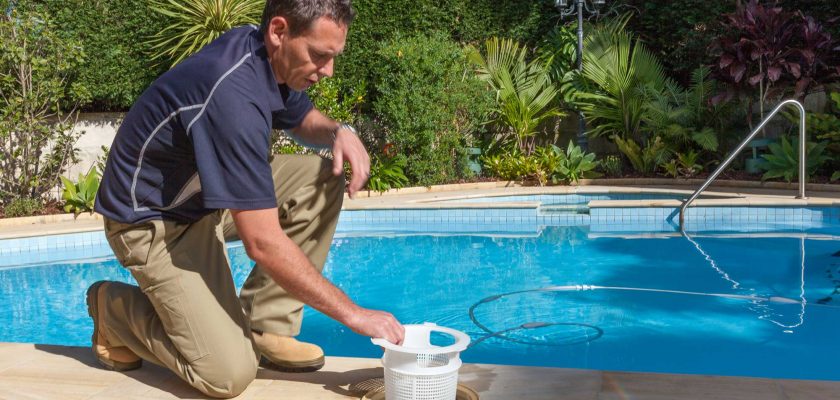Swimming pools can be excellent additions to your backyard: your kids will love it, your dog will love it, and you’ll get a great spot for recreation and entertainment with it. However, keeping it safe and clean will take regular effort on your part. Remember, dirty pools do not just look bad, they’re also a perfect breeding ground for all sorts of bacteria.
So, how to clean it spotless and keep it that way? How often should you clean it? When to call the professionals? What types of cleaning tools best suit your pool?
Well, in this article, we’ll answer all of your relevant maintenance questions, so read on to find out everything there’s to know about it!
What happens if you don’t clean your swimming pool?
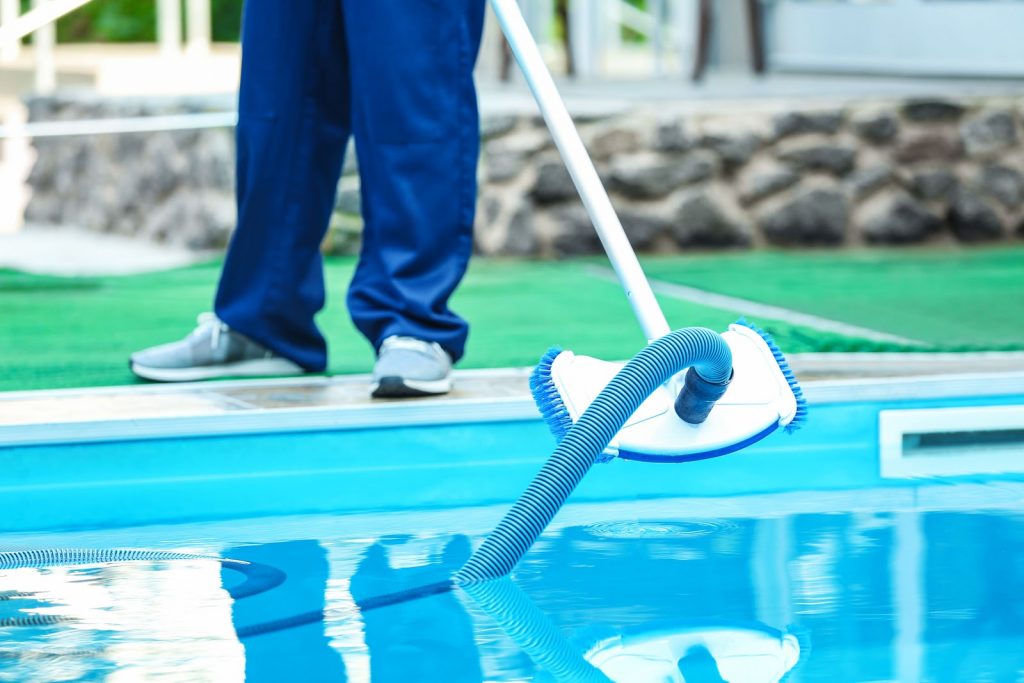
Source:risingsunpools.com
Now, if you for some reason decide that regular pool maintenance is not worth your time, you’re risking much more than getting nasty looks from your guests and neighbors alike. As we’ve mentioned before, you’ll have an unusable pool that could be potentially hazardous to everyone who tries to swim in it. Even if it looks clean from the outside, there could be a major bacterial infestation hiding in the water. Potential culprits include Escherichia coli, cryptosporidium, or even giardia. Exposure to these germs could lead to potentially life-threatening diseases and infections.
So yes, refusing to clean your pool regularly isn’t a good idea, ever. Besides, irregular maintenance could lead to costly damages to the interior of your pool, which would cost you much more than cleaning it regularly in the first place.
Different types of materials require different amounts of maintenance
Pools come in different sizes, shapes and are made of different materials, so just because your friend has a cleaning routine that works for them, it doesn’t mean it’s momentarily applicable to your pool too. The first thing that should be considered is whether you have concrete, fiberglass, or a vinyl pool. We’ll go over the specific “care” routines that apply to each of these categories down below.
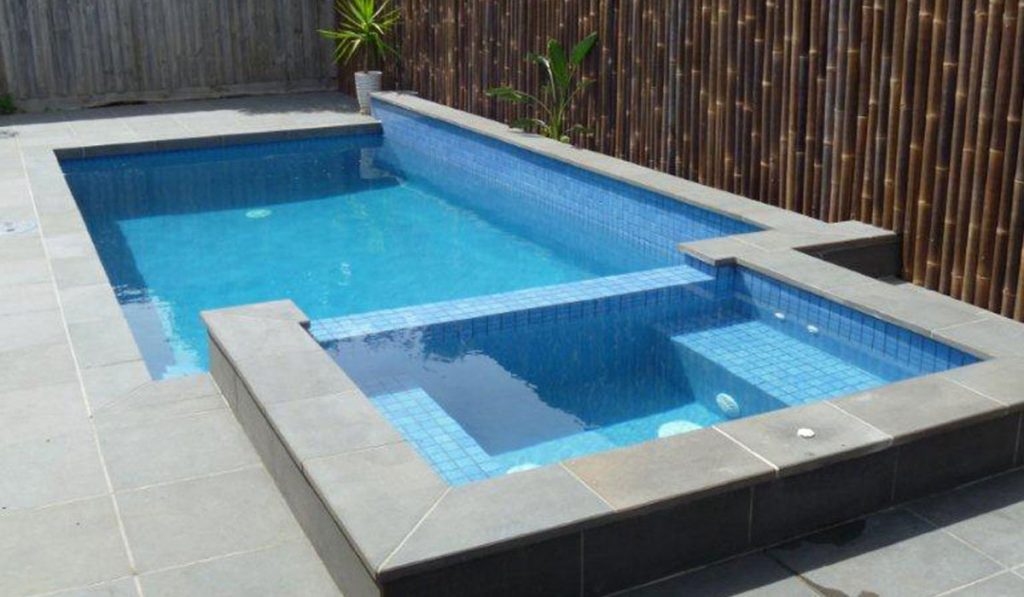
Source:poolsrus.com.au
- Concrete- Concrete pools require the most maintenance out of all. Algae growth is a real problem with these, so you’ll need to use a steel brush at least once per week. Besides that, a thorough acid washing should be done every three to five years to ensure every stubborn pore is cleaned properly. If you’re utilizing a filter system to keep it clean, at least two circulations are required per day, which can be quite a strain on the system. Lastly, water chemistry should be monitored daily, as concrete pools require acid to stay safe and balanced. We also recommend getting it professionally cleaned at least once per year.
- Vinyl- Vinyl liner pools require less maintenance than their concrete counterparts, but the water chemistry should be closely monitored for maximum cleanness and safety. Make sure your water is in the right PH range, and get it tested by professionals as frequently as you can. Besides the water chemistry, pay close attention to your liners, as they’re usually incredibly thin and prone to breakage and leaks. If you’re using a filter system, it will require one circulation per day to keep it in its optimal state (unless it’s extremely dirty, in which case it will take about 3-4 days until it’s clean again).
- Fiberglass- Fiberglass pools are famous for being low-maintenances. However, this does not mean you can or should provide no maintenance at all! As with any other type of pool, regulating and monitoring your water chemistry as frequently as possible is of the utmost importance. The minimum is once per week, but if you notice any weird smells or changes in color, it’s time to get it tested. Algae shouldn’t be a problem at all (fiberglass is extremely resistant), so it’s one less worry for you! Filter cleaning requires only one circulation, just like with vinyl alternatives. We still recommend you get it professionally cleaned from time to time, especially if you’re unable to do it yourself.
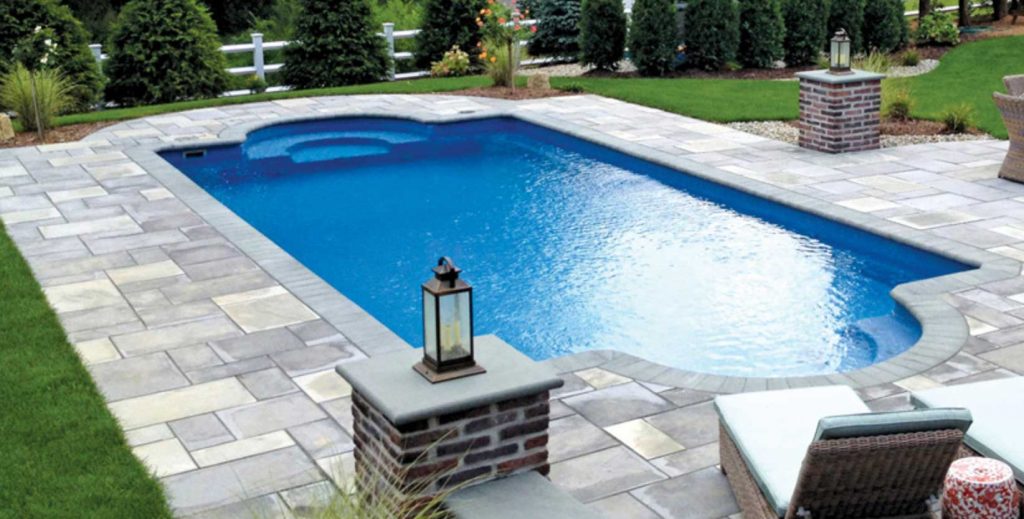
Source:alohapoolsusa.com
How do you choose the cleaning tools, chemicals, and professional cleaning services that best suit your needs?
We suggest you start by finding a reliable pool cleaning service in your local area. They’ll be able to provide you with proper advice on how to clean it yourself, including the choice of cleaning solutions, chemicals, and vacuuming tools. Make sure they’re reliable enough by reading their online reviews or getting recommendations from your local community.
Besides that, make sure you get it installed by professionals with experience in the industry. As noted at Gordonave, improper installation is where all of your maintenance issues come from.
Lastly, consider your specific circumstances
While the skimmers, walls, tiles, and chemical balance of the water should be tended to at least once per week, sometimes you’ll need to increase the frequency of cleaning depending on your specific circumstances. For example, let’s say you’ve hosted a large party for your family and friends (post-COVID, hopefully), or maybe there was a windy storm the night before. Either way, you now got yourself a dirty pool. Even if you’ve already finished your maintenance routine for that week, perhaps it’s time for a little redo.
Again, if you notice any weird smells, colors, or even leakage in your pool, it’s best to repeat your maintenance routine once more. The longer you postpone it, the harder the cleanup will be. If it’s already too dirty for you to handle, do not hesitate to call the professionals instead.
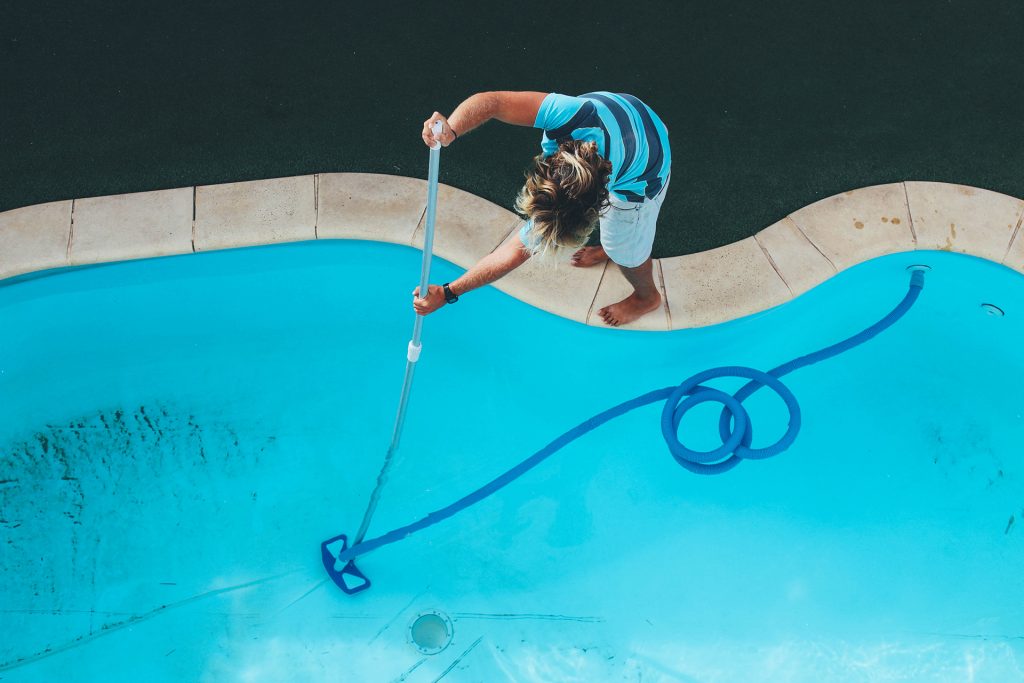
Source:woodfieldoutdoors.com
The bottom line
Keeping your pool as clean as possible is of the utmost importance! It’s the only way to avoid dangerous build-ups of bacteria and germs, all while preserving the interior from corrosion and possible leaks. We suggest you check the chemical balance of the water at least once per week and come up with your weekly cleaning routine for the best results. If things ever get out of hand, don’t hesitate to seek professional guidance.
Overall, we hope our article helped you find the best cleaning routine to keep your costly investment safe and long-lived for as long as possible.

